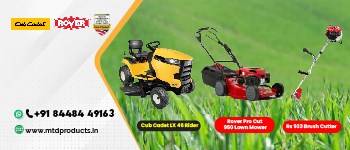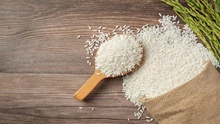
Upcycling eggshells into homemade fertilizer is an eco-friendly and sustainable gardening practice that provides essential nutrients to plants while reducing waste and promoting growth.
In this guide, we'll walk you through the process, step by step, explaining the benefits and uses of this sustainable gardening practice.
-
Collection and Cleaning
Start by saving eggshells from your daily cooking or baking activities. It's crucial to rinse them thoroughly to eliminate any remaining egg residue. Once washed, allow the eggshells to air dry completely.
-
Crushing the Eggshells
After the shells have dried, the next step is to crush them into small pieces. You can use various tools for this, such as a mortar and pestle, a rolling pin, or even a food processor. The objective is to achieve a coarse texture, so avoid grinding them into a fine powder.
-
Preparing the Eggshell Tea
Take the crushed eggshells and place them in a suitable container, like a jar or bucket. Then, add water to the container, ensuring it covers the eggshells entirely. The recommended ratio is about 4 cups of water for every 10 eggshells.
-
Allowing the Mixture to Steep
The mixture of eggshells and water needs time to work its magic. Allow the eggshells to steep in the water for several days, preferably up to a week. This steeping period is essential as it enables the water to absorb valuable nutrients from the eggshells.
-
Straining the Liquid
After the steeping period is complete, it's time to separate the eggshell-infused water from the solid eggshell remnants. You can use tools like a fine mesh strainer, cheesecloth, or a coffee filter to achieve this separation.
-
Diluting and Application
The strained liquid is now your homemade eggshell fertilizer. To make it suitable for your plants, dilute it further by mixing 1 part of eggshell tea with 3 parts of water. This diluted mixture should be used to water your plants or poured directly around the base of your plants.
-
Application to Soil
When using your homemade eggshell fertilizer, be careful to gently pour it around the root zone of your plants. It's important to avoid getting the liquid directly on the leaves to prevent potential burns due to the high calcium content.
-
Repeating the Application
To ensure your plants benefit consistently, you can use this homemade eggshell fertilizer every few weeks or as needed throughout the growing season. Monitor how your plants respond to this fertilizer and adjust the frequency of application accordingly.
Eggshells are a valuable source of calcium carbonate, essential for plants like tomatoes and peppers. This homemade fertilizer mildly raises soil pH, favoring alkaline conditions.
Alternatively, crushing eggshells into a fine powder can help balance pH for plants that prefer acidity. It's crucial to integrate homemade fertilizers into a well-rounded nutrient regimen. Besides calcium, plants require nutrients like nitrogen, phosphorus, and potassium.
Composting and organic fertilizers serve as vital sources of these elements, ensuring comprehensive plant health. Repurposing eggshells for fertilizer not only offers essential nutrients but also promotes eco-conscious gardening by reducing waste and embracing sustainable practices.
In conclusion, creating homemade plant fertilizer from eggshells is an eco-friendly way to nurture your garden. By following these simple steps, you can enhance the growth of your plants, reduce waste, and promote a sustainable approach to gardening.











